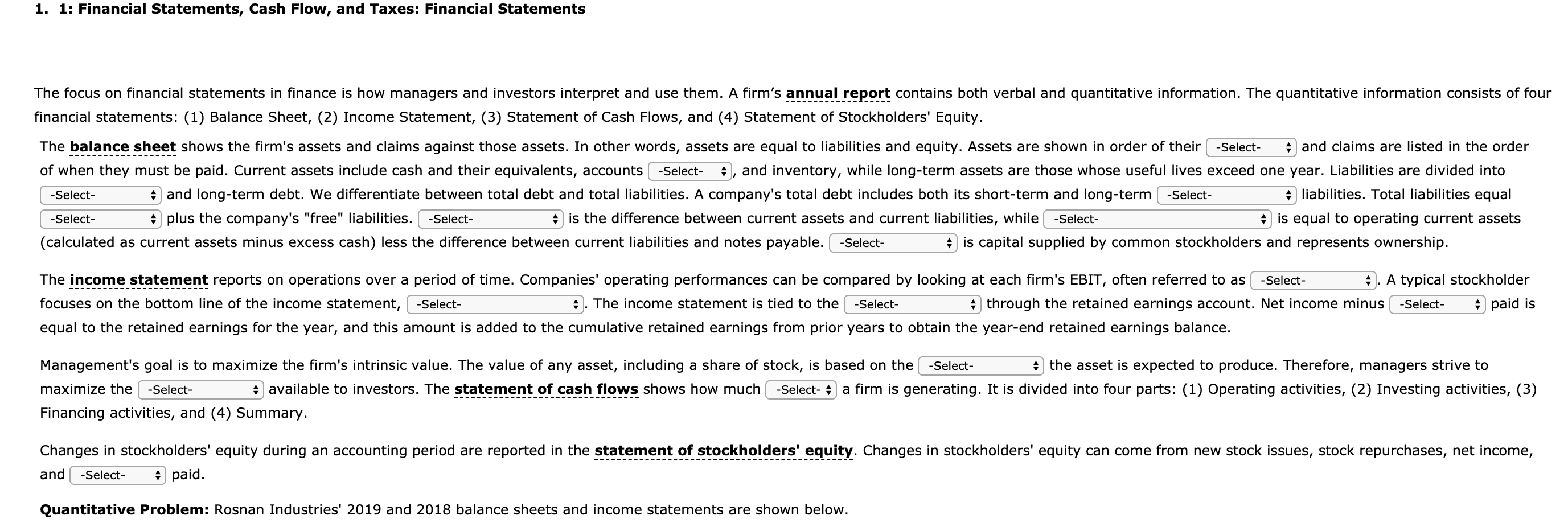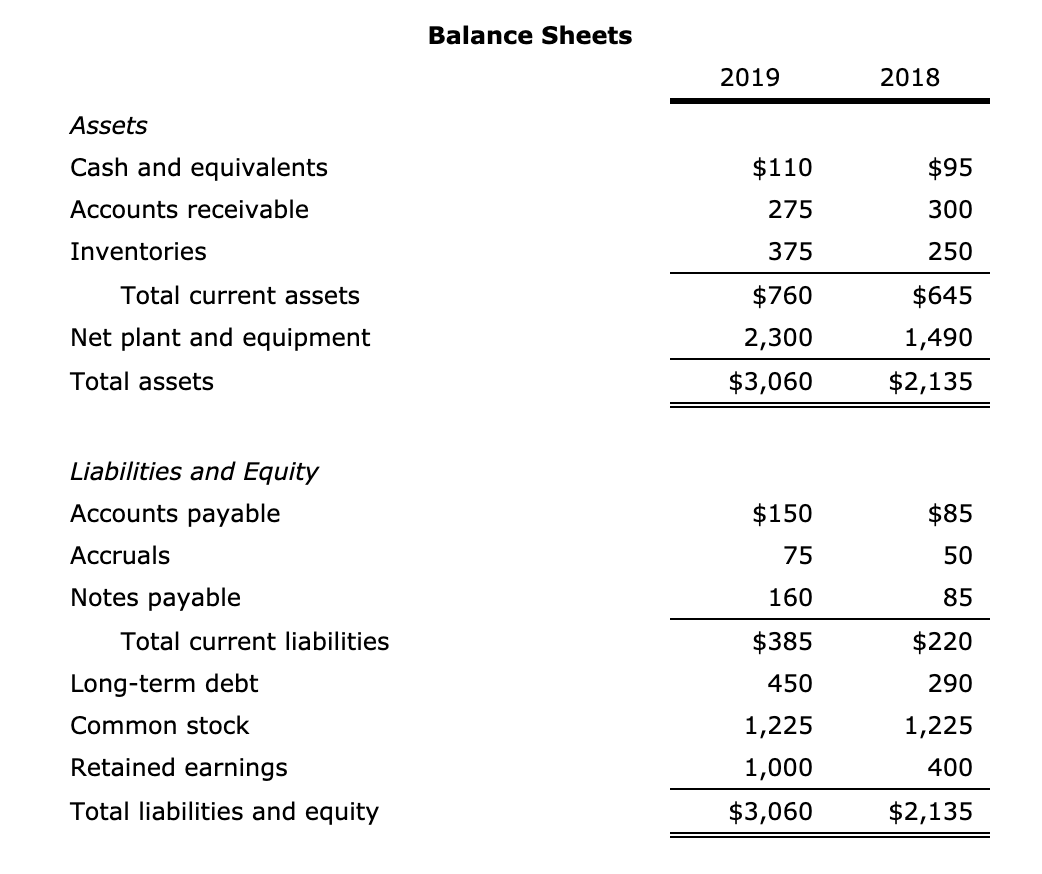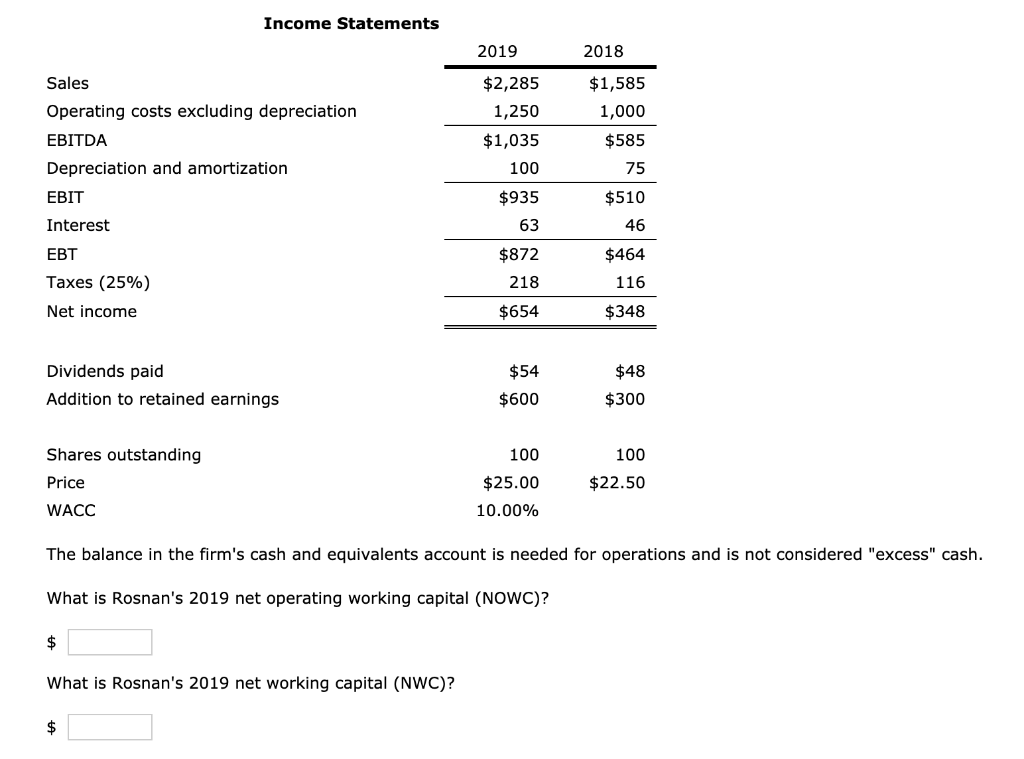Question
1. Balance, Liquidity, importance 2.Payable, Receivable, Accrual 3. Current Assets, Notes Payable, Current Liabilities 4. Non-interest bearing, Interest bearing 5. Current Liabilities, Total Equity, Total



1. Balance, Liquidity, importance
2.Payable, Receivable, Accrual
3. Current Assets, Notes Payable, Current Liabilities
4. Non-interest bearing, Interest bearing
5. Current Liabilities, Total Equity, Total Debt
6.Net working capital, Net fixed assets, net current liabilities
7.Net operating current liabilities Net operating working capital, None-net operating current liabilities
8. Net income, operating income, net worth
9.Operating income, net income, total income
10. Dividends per share, , earning per share, price per share,
11. Cash flow statement, Cash budget, balance sheet
12.Depreciation, dividends, interest
13. Net income, Cash flow, Operating income (And 14.)
15.Income, Cash, Debt
16. Depreciation, dividends, interest
1. 1: Financial Statements, Cash Flow, and Taxes: Financial Statements The focus on financial statements in finance is how managers and investors interpret and use them. A firm's annual report contains both verbal and quantitative information. The quantitative information consists of four financial statements: (1) Balance Sheet, (2) Income Statement, (3) Statement of Cash Flows, and (4) Statement of Stockholders' Equity. The balance sheet shows the firm's assets and claims against those assets. In other words, assets are equal to liabilities and equity. Assets are shown in order of their -Select- and claims are listed in the order of when they must be paid. Current assets include cash and their equivalents, accounts -Select- A, and inventory, while long-term assets are those whose useful lives exceed one year. Liabilities are divided into -Select- and long-term debt. We differentiate between total debt and total liabilities. A company's total debt includes both its short-term and long-term -Select- liabilities. Total liabilities equal -Select- Aplus the company's "free" liabilities. -Select- is the difference between current assets and current liabilities, while -Select- is equal to operating current assets (calculated as current assets minus excess cash) less the difference between current liabilities and notes payable. -Select- is capital supplied by common stockholders and represents ownership. The income statement reports on operations over a period of time. Companies' operating performances can be compared by looking at each firm's EBIT, often referred to as-Select- . A typical stockholder focuses on the bottom line of the income statement, -Select- A. The income statement is tied to the -Select- through the retained earnings account. Net income minus -Select- paid is equal to the retained earnings for the year, and this amount is added to the cumulative retained earnings from prior years to obtain the year-end retained earnings balance. Management's goal is to maximize the firm's intrinsic value. The value of any asset, including a share of stock, is based on the -Select- the asset is expected to produce. Therefore, managers strive to maximize the -Select- available to investors. The statement of cash flows shows how much -Select- ^ a firm is generating. It is divided into four parts: (1) Operating activities, (2) Investing activities, (3) Financing activities, and (4) Summary. Changes in stockholders' equity during an accounting period are reported in the statement of stockholders' equity. Changes in stockholders' equity can come from new stock issues, stock repurchases, net income, and -Select- paid. Quantitative Problem: Rosnan Industries' 2019 and 2018 balance sheets and income statements are shown below. Balance Sheets 2019 2018 Assets $95 Cash and equivalents Accounts receivable $110 275 300 Inventories 375 250 $760 $645 Total current assets Net plant and equipment Total assets 2,300 1,490 $3,060 $2,135 $150 $85 75 50 160 85 Liabilities and Equity Accounts payable Accruals Notes payable Total current liabilities Long-term debt Common stock Retained earnings Total liabilities and equity $385 $220 450 290 1,225 1,225 1,000 400 $3,060 $2,135 Income Statements 2019 2018 $2,285 1,250 $1,035 100 Sales Operating costs excluding depreciation EBITDA Depreciation and amortization EBIT Interest EBT Taxes (25%) Net income $935 $1,585 1,000 $585 75 $510 46 $464 116 $348 63 $872 218 $654 $54 Dividends paid Addition to retained earnings $48 $300 $600 Shares outstanding Price WACC 100 $25.00 10.00% 100 $22.50 The balance in the firm's cash and equivalents account is needed for operations and is not considered "excess" cash. What is Rosnan's 2019 net operating working capital (NOWC)? What is Rosnan's 2019 net working capital (NWC)? $Step by Step Solution
There are 3 Steps involved in it
Step: 1

Get Instant Access to Expert-Tailored Solutions
See step-by-step solutions with expert insights and AI powered tools for academic success
Step: 2

Step: 3

Ace Your Homework with AI
Get the answers you need in no time with our AI-driven, step-by-step assistance
Get Started


